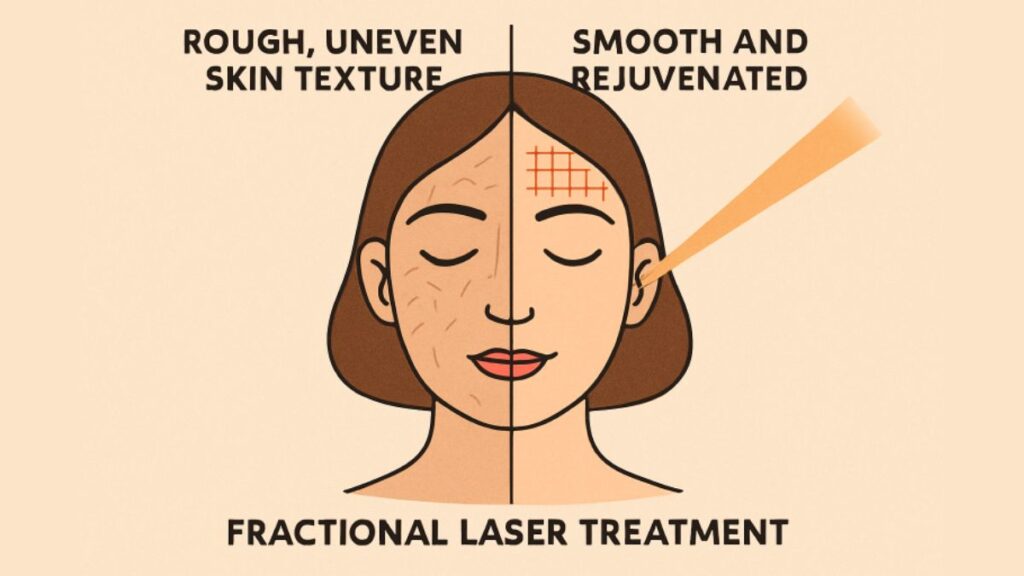Introduction
Fractional laser treatments are rapidly shaping the landscape of modern skincare by offering targeted, practical solutions for various skin issues with minimal downtime. These treatments are especially valuable for those seeking advances like laser skin resurfacing in Reston, VA, which provides innovative ways to renew and rejuvenate skin. Modern fractional lasers address concerns like wrinkles and hyperpigmentation and prioritize patient comfort and safety in every step of the process.
Innovations in fractional laser technology are driven by the demand for more personalized and efficient skincare solutions. By harnessing the most current advances—like AI-guided laser settings and enhanced cooling methods—clinicians can customize treatments, leading to superior results and higher patient satisfaction. These developments reflect a broader shift toward technology-driven, individualized care that meets the evolving needs of today’s skincare patients.
Understanding Fractional Laser Technology
Fractional laser technology uses laser beams divided into thousands of microscopic columns, treating a fraction of the skin at a time while leaving surrounding tissue untouched. These columns, known as microscopic treatment zones (MTZs), activate the body’s healing response, triggering new collagen growth for smoother, firmer, and even-toned skin. This unique approach significantly reduces recovery times and lowers the risk of side effects compared to older, fully ablative lasers.
Fractional lasers are ideal for managing diverse skin concerns such as acne scars, melasma, surgical scars, and aging skin signs. Since only a portion of the skin is treated during a session, most people experience less redness, swelling, or pain following treatment, translating to a smoother healing journey. This allows individuals to return to their routines quickly while enjoying visible improvements to skin texture and appearance.
Advancements in Laser Technology
- Picosecond Lasers: Using ultrashort pulses measured in trillionths of a second, picosecond lasers effectively target pigmentation and fine lines with reduced risk of side effects. These lasers fragment pigmentation more efficiently, leading to quicker clearance and less post-procedure downtime.
- AI Integration: Modern laser systems increasingly incorporate AI algorithms that analyze skin characteristics, enabling clinicians to tailor each patient’s laser selection and energy settings. AI analyzes factors such as skin type, sensitivity, and scar history, minimizing complications and maximizing results. Healthline underscores the value of AI-supported diagnostics for tailored skincare recommendations.
- Enhanced Cooling Systems: Sophisticated cooling mechanisms built into current laser devices ensure skin stays comfortable during and after the procedure. By minimizing the heat’s impact, these systems help prevent burns and soothe inflammation, leading to less discomfort and a lower risk of complications for the patient.
Combination Therapies for Enhanced Results
Multimodal treatment strategies are revolutionizing fractional laser procedures. Pairing fractional laser therapy with microneedling, radiofrequency, or chemical peels allows clinicians to address multiple layers of the skin and diverse concerns in a single, comprehensive plan. These combinations, tailored to the individual, provide longer-lasting and more robust results than standalone therapies.
For example, microneedling combined with fractional laser therapy can enhance the absorption of topical serums while further stimulating collagen development. Such integrative approaches pave the way for completely customized patient roadmaps, offering transformative outcomes for individual blemishes and complete facial rejuvenation. Vogue has reported on these hybrid techniques’ growing popularity and efficacy in clinical and at-home skincare.
Improved Recovery Protocols and Post-Treatment Care
The latest post-treatment recovery protocols emphasize patient comfort, healing speed, and the reduction of side effects. Clinics now offer highly personalized aftercare regimens based on the individual’s skin characteristics and the nature of their treatment. This may include soothing serums, hydration masks, and gentle cleansers formulated with peptides and growth factors to accelerate healing and support new tissue generation.
Patients are encouraged to avoid harsh irritants and to maintain rigorous sun protection practices. Advanced recovery products, such as those containing niacinamide and antioxidants, help fend off redness and support the skin barrier during the crucial few weeks after treatment. These evolved aftercare strategies are foundational to achieving the best possible clinical results and high patient satisfaction.
Future Directions in Fractional Laser Treatments
- Greater AI Personalization: As AI and machine learning become further entwined with laser systems, the ability to predict and optimize ideal settings for each patient will grow, improving safety and efficacy for a broader range of patients.
- Advancement in Nanotechnology: Early research suggests that combining nanotechnology—such as nanoparticles that deliver active ingredients or enhance laser absorption—could reduce recovery times even further while boosting treatment results.
- Broader Applications: Expanding access for all skin types is a key development area. Innovations are making it feasible to safely perform laser treatment on deeper skin tones and in delicate areas, breaking traditional limitations and promoting inclusivity in professional skincare services.
These emerging trends indicate an exciting future where skincare is data-driven, uniquely personalized, and more effective than ever. Patients can anticipate a continuum of technological advancements that make rejuvenation safer, faster, and more comprehensive.
Conclusion
Fractional laser treatments stand at the forefront of innovation, offering customizable and minimally invasive options for addressing a broad spectrum of skin concerns. The blend of technological advancement, targeted therapies, and individualized aftercare continues to redefine possibilities in modern skincare. As interest and research in the field grow, the potential to refine laser skin resurfacing and beyond remains promising, enabling more people than ever to enjoy healthier, revitalized skin.






